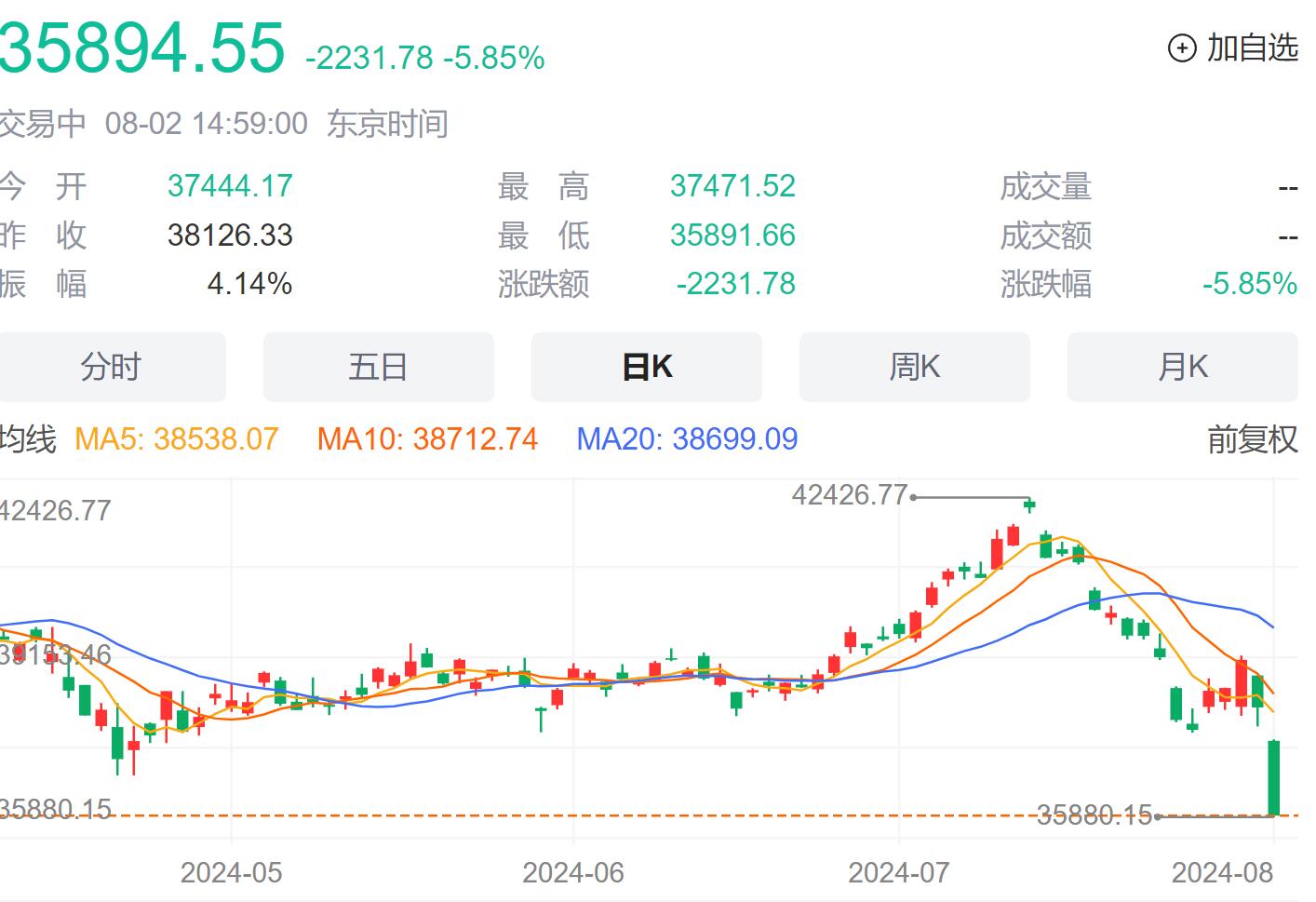The Japanese stock market has plummeted for two consecutive days, and the market is waiting for non farm payrolls
Poor economic data in the United States
The policy sensitive two-year yield hit a 14 month low as market expectations for a rate cut increased after the Federal Reserve's policy meeting on Wednesday. Swap traders have increased the number of interest rate cuts this year from two to three.

Last week, the number of initial jobless claims in the United States approached a one-year high, while the manufacturing industry contracted, leading to an overall increase in risk aversion. At the same time, the performance prospects or results of industry giants such as Intel and Amazon have been disappointing, and losses in technology stocks have intensified.
Billy Leung, investment strategist at Global X Management, said, "After confirming the FOMC's September rate cut path, market narratives are rapidly changing. Manufacturing and employment data are pointing towards recession levels, and investors are now questioning whether the Federal Reserve is cutting interest rates too late. The US economic recession will also harm Asia
The US stock index futures continued to decline in the Asian market, with contracts for the S&P 500 and Nasdaq 100 falling across the board, exacerbating the decline in the benchmark index on Thursday, and some post market reports from companies failing to meet expectations. Intel stated that its third quarter revenue will be disappointing, while Amazon's expected profit did not meet analysts' expectations, leading to a decline in the stock prices of both companies in after hours trading.
In terms of the foreign exchange market, the Japanese yen has ended its three-day uptrend, with the previous increase bringing the yen to nearly 149 against the US dollar. The pound fell on Thursday after the Bank of England cut interest rates and hinted at further cautious rate cuts in the future. The Bloomberg US dollar index rose slightly.
In addition to the recent surge in the Japanese yen, concerns about the health of the world's largest economy have also dragged down the Japanese stock market.
Kiyoshi Ishigane, Chief Fund Manager of Mitsubishi UFJ Asset Management, said, "I didn't expect stocks to fall so much. This may be because people are worried that the US economy will collapse significantly, which is the most unpleasant pattern for Japanese stocks
Market waiting for non-agricultural
Investors will closely monitor the employment data to be released later on Friday in search of further clues about the economic situation and the path of the Federal Reserve's interest rates. Economists expect the government's July employment report to show a slowdown in job growth. Forecasters expect the unemployment rate to remain at 4.1%.
Chris Senyek from Wolfe Research said, "Over the past few months, the labor market has been sending warning signals. History shows that Powell is taking a very delicate path and may have to wait too long to start cutting interest rates, otherwise it will be too late
In the commodity market, oil prices fluctuated after falling on Thursday due to potential supply disruptions caused by the tense situation in the Middle East. At the same time, gold prices are fluctuating near historical highs.
Tips:This page came from Internet, which is not standing for FXCUE opinions of this website.
Statement:Contact us if the content violates the law or your rights
